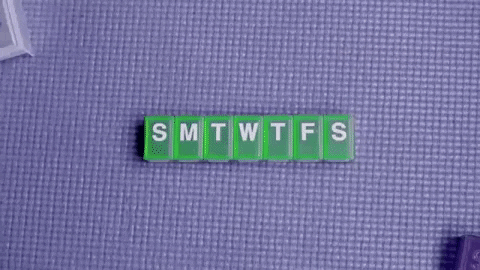
Published on Feb 12, 2024
Last modified on Sep 18, 2024
Answering Frequently Asked Questions About Addyi, A Non-Hormonal Treatment For Low Libido
4 min read

Decreased libido is a common symptom of the menopause transition, and the most common women’s sexual health complaint we hear from patients.
In more science-y terms, it’s known as hypoactive sexual desire disorder (or HSDD for short). And in less science-y terms, low sex drive.
Whatever you call it, it tends to manifest as little to no interest in any type of sexual activity, including self-pleasure or masturbation.
More and more healthcare providers are prescribing topical testosterone for menopausal women which, while not yet FDA-approved, has substantial evidence on its safety and efficacy when it comes to enhancing sexual mood, arousal or responsiveness to sexual stimulus, and orgasms.
But hormonal treatments aren’t the only option — whether you cannot take hormones due to family/personal health history or simply choose not to, there are non-hormonal options for low sexual desire. Enter, Addyi.
Below, Jackie Giannelli, Elektra’s Founding Nurse Practitioner who specializes in urogynecology and women’s sexual health, answers common questions about this increasingly popular treatment option.
What is Addyi?
Addyi, which goes by the generic name Flibanserin, is a daily pill used to treat low libido (not to be confused for sexual performance).
While it’s only been FDA-approved for premenopausal women, it CAN be a viable option for postmenopausal women as well (although insurance coverage may be more difficult in this case).
How does Addyi work?
Addyi has been shown in clinical trials to modestly increase sexual desire and the number of sexually satisfying events (i.e. sexual intercourse, oral sex, masturbation, or genital stimulation by a partner), as well as reduced stress associated with a low sexual desire. Certain studies also indicate that it may aid with weight loss and improve sleep.
It works by interacting with serotonin receptors in our central nervous system, which has downstream effects on dopamine (which helps boost desire) and norepinephrine (which plays a role in sexual arousal).
How long does it take for Addyi to work?
Data shows that it can take up to four weeks to begin experiencing results from Addyi.
Not seeing improvements after eight to twelve weeks? Definitely talk to your doctor about whether it makes sense to continue, or if a treatment modification may be needed. If you DO decide to stop, there is no weaning period or withdrawal.
How do I know if Addyi is right for me?
If you 1) are approaching the menopause transition 2) have not struggled with low sexual desire or sexual dysfunction in the past 3) find yourself confronting low sexual desire regardless of the type of sexual activity or partner and 4) that low sexual desire is not due to a mental or medical condition, then it’s worth talking with your healthcare provider about Addyi!
You cannot take Addyi if you have liver problems. Also, it is not known whether it’s safe to take Addyi while pregnant or breastfeeding, so definitely talk with your doc about that.
Is Addyi safe?
Side effects
When taken correctly, Addyi has been found to be safe with some minor but common side effects, including dizziness, sleep disruptions (trouble sleeping, sleepiness, tiredness, drowsiness) nausea, and dry mouth.
It’s important to avoid drinking alcohol within 1-2 hours of taking Addyi to avoid side effects like dizziness and low blood pressure.
Drug interactions
First off, before you start taking Addyi (or any medication), it’s important to tell your doctor about ALL the medications you’re taking (prescription drugs and over-the-counter meds included), as well as any supplements or vitamins.
While you’re on Addyi, be sure to avoid:
- Certain antibiotics (ciprofloxacin, telithromycin, erythromycin, clarithromycin)
- Nefazodone (an antidepressant)
- Certain antifungal medications (fluconazole, itraconazole, ketoconazole, posaconazole)
- Certain medications used to treat high blood pressure, chest pain, or other heart problems (diltiazem, verapamil, conivaptan)
- Certain Hepatitis-C medications (boceprevir, telaprevir)
It’s also recommended to avoid grapefruit juice, herbal supplements (like St. John’s Wort), and over-the-counter medications (like cimetidine) while on Addyi.
For a full list of potential drug interactions, refer to Addyi’s medication guide.
The bottom line
While Addyi can help, it’s not a magic pill. So it’s important to take a holistic approach to improving libido symptoms, including lifestyle changes, supplements and over-the-counter products, and smart communication with your partner. Here’s some info to get you started.
- 24 Sexual Wellness Products To Help Light That Libido
- How To Talk To Your Partner About Libido
- Low Libido: The Unspoken Menopause Symptom (let’s fix that)
- Setting The Record Straight On Orgasms During & After Menopause
- Sex Should *Never* Hurt. So How Come It Sometimes Does During Menopause?
Interested in an Addyi prescription?
Turn to Elektra. Our board-certified providers can prescribe FDA-approved treatments for hypoactive sexual desire disorder, Addyi included.
We can also prescribe other hormonal and non-hormonal options like Vylessi (which, unlike Addyi, is only used when needed and great for those who don’t want to worry about a missed dose).
Bonus points for the fact that clinical care with Elektra is now by select insurance!


